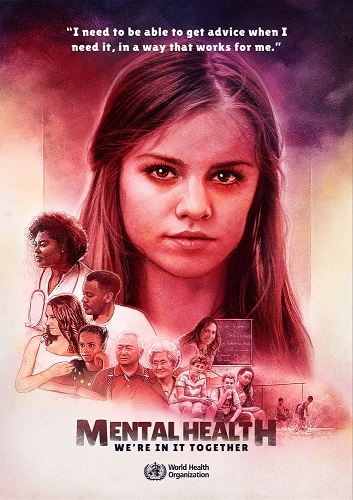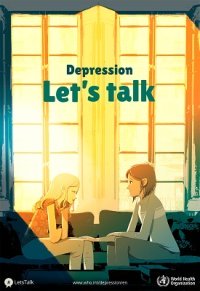World Mental Health Day was last week on October 10th. World Health Organization attributes each year a theme to this day and this year it was “young people and mental health in a changing world”. Here, at A Sisters’ Thing, we are very dedicated to a healthy lifestyle in its’ every aspect. Therefore, in regard of this day, we want to bring forward towards discussion an important mental health issue, depression.

Mental illness is a struggle for everyone, both young people and adults, affecting not only the patients, but also for their friends and family. The most important thing we can do about this is to listen and understand. Only then we will realize the importance of these issues.
The most common mental issue out there is, for sure, depression. Last year, WHO organized an important worldwide campaign about how depression is something that can be discussed and the goal is to get people who encounter this issue to seek professional help.
What is depression?
Depression is more than just “being sad”, it’s an issue that can severely interfere with a person’s well-being and capability to function in society. WHO defines depression as “an illness characterized by persistent sadness and a loss of interest in activities that you normally enjoy, accompanied by an inability to carry out daily activities, for at least two weeks. In addition, people with depression normally have several of the following symptoms: a loss of energy; a change in appetite; sleeping more or less; anxiety; reduced concentration; indecisiveness; restlessness; feelings of worthlessness, guilt, or hopelessness; and thoughts of self-harm or suicide” (source: www.who.int).
Why are people afraid to talk about depression?
Even nowadays, there is an important stigma around any mental illness. People are afraid to seek help because they might be judged by their peers, not realizing that talking to a family member, a friend or a professional, might be a life saving step.
What can we do?
What everyone can do is to be open and talk about mental illness. Get informed and bring up this subject to the people close to you. The first steps we can take in addressing this issue is breaking up the stigma and encouraging more and more people to seek help. Depression is something that should be discussed with everyone: friends and family, in schools, at the workplace, and even in social media or blogs.
Anyone can suffer of depression, even people you might not be expecting. People struggling might not ever “seem sad” or show this in their behavior, but they can be of any age, sex or social status. There are, of course, some more sensitive groups such as adolescents and young adults, women of childbearing age (particularly following childbirth), and older adults (over 60s).
WHO’s key messages about depression
“Depression is a common mental disorder that affects people of all ages, from all walks of life, in all countries.
The risk of becoming depressed is increased by poverty, unemployment, life events such as the death of a loved one or a relationship break-up, physical illness and problems caused by alcohol and drug use.
Depression causes mental anguish and can impact on people’s ability to carry out even the simplest everyday tasks, with sometimes devastating consequences for relationships with family and friends.
Untreated depression can prevent people from working and participating in family and community life.
At worst, depression can lead to suicide.
Depression can be effectively prevented and treated. Treatment usually involves either a talking therapy or antidepressant medication or a combination of these.
Overcoming the stigma often associated with depression will lead to more people getting help.
Talking with people you trust can be a first step towards recovery from depression.”
(source: www.who.int)
Much love,
Cristina


Be the first to comment on "What Is Depression?"